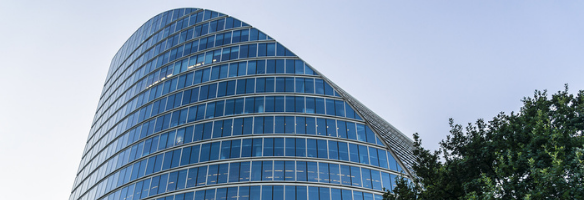Commercial Property: Should You Rent Or Buy?
Dec 15 2015
Darren Best

Whether you’re looking to expand your business or just re-locate to an area synonymous with your industry, the search to find commercial property space can be a tricky business. From practicalities such as the daily commute to trivial matters – like places to pick up a good lunchtime meal deal – there’s a seemingly never-ending list of things to consider.
Before you even embark on your property search, you must elect to either buy or rent property. Get it wrong, and it could spell financial hardship for your business. Therefore, it is fundamental that current cash flow, projected future expenses and business expansion are all taken into consideration before making your final decision. Costs, such as management and employees, should also be taken into consideration.
Advantages of renting:
Business office rental is practical for companies who are in the beginning stages of their development, or who are growing at an astonishingly fast rate. An evolving business will have different office requirements as it progresses, so being able to alter office space periodically makes more sense, than committing long term to one property.
Moreover, the phrase 'location, location, location' has never been more valid when you are searching to find a commercial property – especially if your business is media, creative or design based. Renting commercial property is an affordable way for a business to sneak into a prime location, such as London.
To reiterate the financial angle, renting will obviously remove the need for ample amounts of cash to be raised upfront – a deposit and first month’s rent are the general guidelines to secure a commercial property. Furthermore, renting office space can often be named a business expense and hence entirely deducted from your taxes.
Finally, finding a business office for lease will save you considerable time; for a business growing quickly and anxious to move in, renting will move much faster than going through any buying process. Better to rent than rush into buying unsuitable offices because of a desire to move in urgently.
 Photo credit: alice-photo / Shutterstock
Photo credit: alice-photo / Shutterstock
Disadvantages of renting:
When looking to find suitable commercial property to rent, an element of uncertainty always exists. Costs are by no means fixed and Landlords can – and most likely will – increase your rent over time, which can be problematic, particularly for small start-up companies. This is especially the case in a hot market where upsurges in price will be dictated by supply and demand.
Then there’s the fact that you’re essentially spending money every month for no real gain; you won’t accrue any equity if you’re renting. Plus, renters are a slave to their Landlord’s requirements and rules; they are by no means free to do whatever they want with a property, so any expansion plans or changes to the office interior will have to be put on hold.
Advantages of buying:
Investing in property is a great way to earn money as it’s pretty much guaranteed to increase in value over time. Not to mention, as an owner you will be free to make any improvements or expansions you wish to your property.
Furthermore, purchasing a property means you’re able to project your costs for years to come due to the advantage of a fixed rate mortgage, as opposed to monthly rent which is subject to change.
Finally, when you find commercial property and buy for your business, it can also be used as a source of extra income. Owners are free to rent out extra office space to whomever they wish if it is too big. So, if you choose to buy larger business offices for sale, in order to give yourself room to grow and expand, this extra space can be utilised in the early stages of business development.
Disadvantages of buying:
First and foremost, buying commercial property is going to involve a down payment of some sort; these range from anywhere between 10-25% of the full property cost – a significant amount of money to have to come up with all at once.
Not to mention the time frame of the buying process – from the moment you find commercial property to the completion date, it can take a great deal of time, hence delaying your move in immensely. Not ideal if you are stuck to deadlines or in a rush.
Although owning a property gives you the power to do what you want with it, with great power comes great responsibility: management, upkeep, repairs and maintenance will all be down to you, and come out of your pocket. Additionally, if you ever need to sell in order to release equity, the selling price and time frame will depend on the market and could leave you worse off in the long run.
 Photo credit: Who is Danny / Shutterstock
Photo credit: Who is Danny / Shutterstock
Ultimately, whether you choose to rent or buy, pros and cons will exist with either approach. The key is to assess your business, expansion goals and financial situation and then make an informed decision based on these aforementioned conclusions.
Once you’ve made your decision, Savoy Stewart can assist with finding the perfect property to suit your needs, budget and area requirements.
Feature image credit: Kiev.Victor / Shutterstock